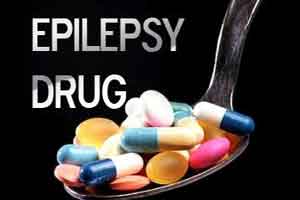- Home
- Editorial
- News
- Practice Guidelines
- Anesthesiology Guidelines
- Cancer Guidelines
- Cardiac Sciences Guidelines
- Critical Care Guidelines
- Dentistry Guidelines
- Dermatology Guidelines
- Diabetes and Endo Guidelines
- Diagnostics Guidelines
- ENT Guidelines
- Featured Practice Guidelines
- Gastroenterology Guidelines
- Geriatrics Guidelines
- Medicine Guidelines
- Nephrology Guidelines
- Neurosciences Guidelines
- Obs and Gynae Guidelines
- Ophthalmology Guidelines
- Orthopaedics Guidelines
- Paediatrics Guidelines
- Psychiatry Guidelines
- Pulmonology Guidelines
- Radiology Guidelines
- Surgery Guidelines
- Urology Guidelines
AAN Updates guidelines on treatment-resistant and new-onset Epilepsy

To develop the new guidelines, a joint AAN-AES subcommittee of experts consisting of Jacqueline French, MD, of the New York University Comprehensive Epilepsy Center, and colleagues, who reviewed studies from January 2003 to November 2015, classifying them according to the AAN therapeutic rating scheme.
Depending on the strength of the evidence for each drug, the subcommittee established recommendations labeled as Level A (effective and the recommendation should be considered), Level B (possibly effective and the recommendation may be considered), Level C (similar to Level B, but with different levels of evidence), or Level U (unproven or unknown).
The updated guideline is published online in the journal Neurology.
The subcommittee had no Level A recommendations for new-onset epilepsy but stated:
- Lamotrigine (Lamictal) should be considered for patients with new-onset focal epilepsy or unclassified generalized tonic-clonic seizures (Level B), and levetiracetam and zonisamide (Zonegran) may be considered (Level C).
- Pregabalin at 150 mg/d is possibly less efficacious than lamotrigine at 100 mg/d (Level C).
- For patients age 60 or older, lamotrigine should be considered (Level B) and gabapentin may be considered (Level C).
- Ethosuximide (Zarontin) or valproate should be considered before lamotrigine in childhood absence epilepsy unless there are compelling reasons based on adverse events profile (Level B).
For newly diagnosed epilepsy, the subcommittee members decided there was not enough data to give third-generation AEDs Level A or B ratings, but "absence of evidence just means the trial has not yet been done in most cases," French said.
"Notably, at the time of the last guideline publication in 2004, there was insufficient evidence to endorse levetiracetam (Keppra) yet even at that time it was -- and still is -- one of the most commonly used AEDs for treatment of newly diagnosed epilepsy," she said.
For treatment-resistant epilepsy, the subcommittee recommended:
- Immediate-release pregabalin and perampanel for treatment-resistant adult focal epilepsy (Level A)
- Vigabatrin for treatment-resistant adult focal epilepsy, but not as first-line agents (Level A)
- Rufinamide for Lennox-Gastaut syndrome as add-on therapy (Level A)
The subcommittee also made several Level B and Level C recommendations for treatment-resistant adult and childhood focal epilepsy, treatment-resistant juvenile myoclonic epilepsy, and treatment-resistant generalized tonic-clonic seizures in adults.
"There is no single takeaway message from this update, as there might be for a guideline with a focused clinical question," French stated. "Rather, the guidelines provide up-to-date information on a large number of available drugs for epilepsy, so that providers will know where the high-quality evidence exists for use of these drugs in specific epilepsy syndromes."
For further information click on the links: https://doi.org/10.1212/WNL.0000000000005755 and https://doi.org/10.1212/WNL.0000000000005756

Disclaimer: This site is primarily intended for healthcare professionals. Any content/information on this website does not replace the advice of medical and/or health professionals and should not be construed as medical/diagnostic advice/endorsement or prescription. Use of this site is subject to our terms of use, privacy policy, advertisement policy. © 2020 Minerva Medical Treatment Pvt Ltd